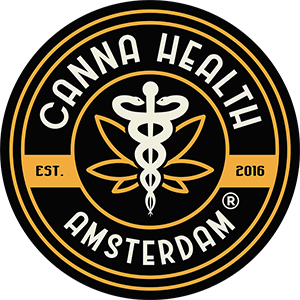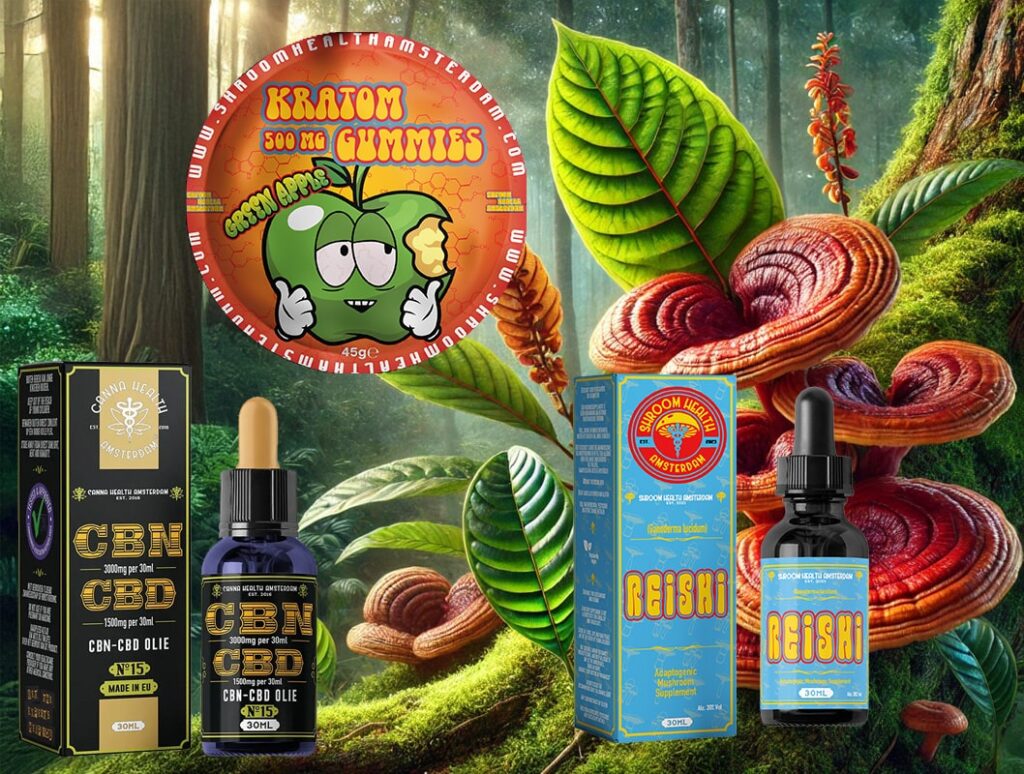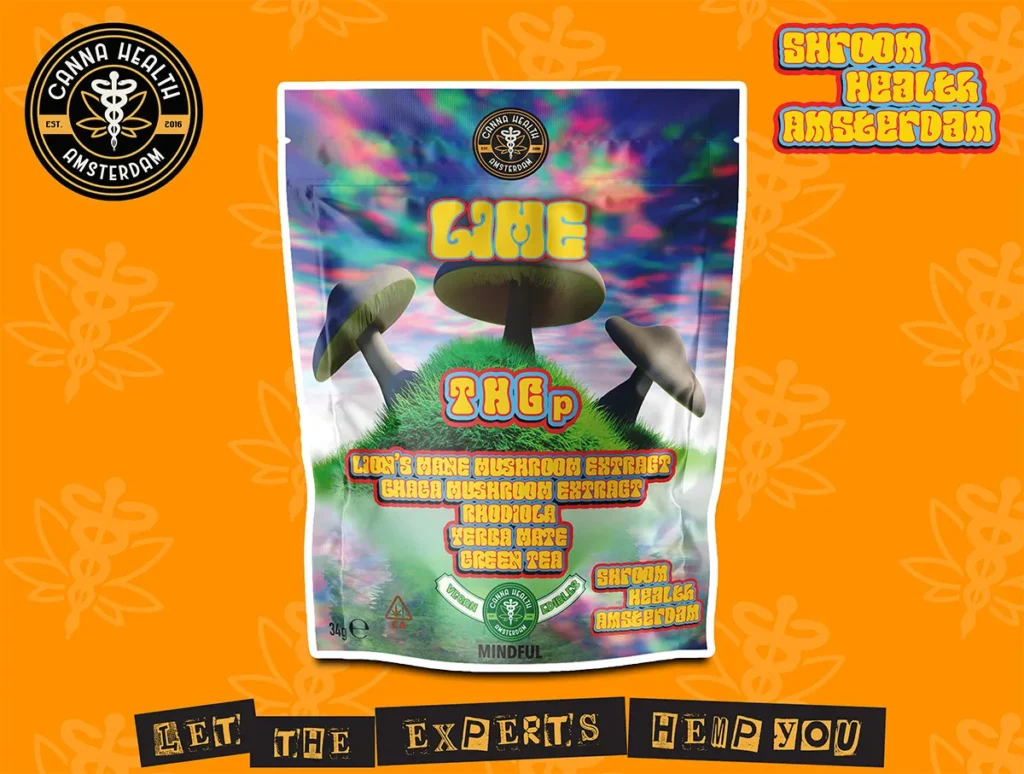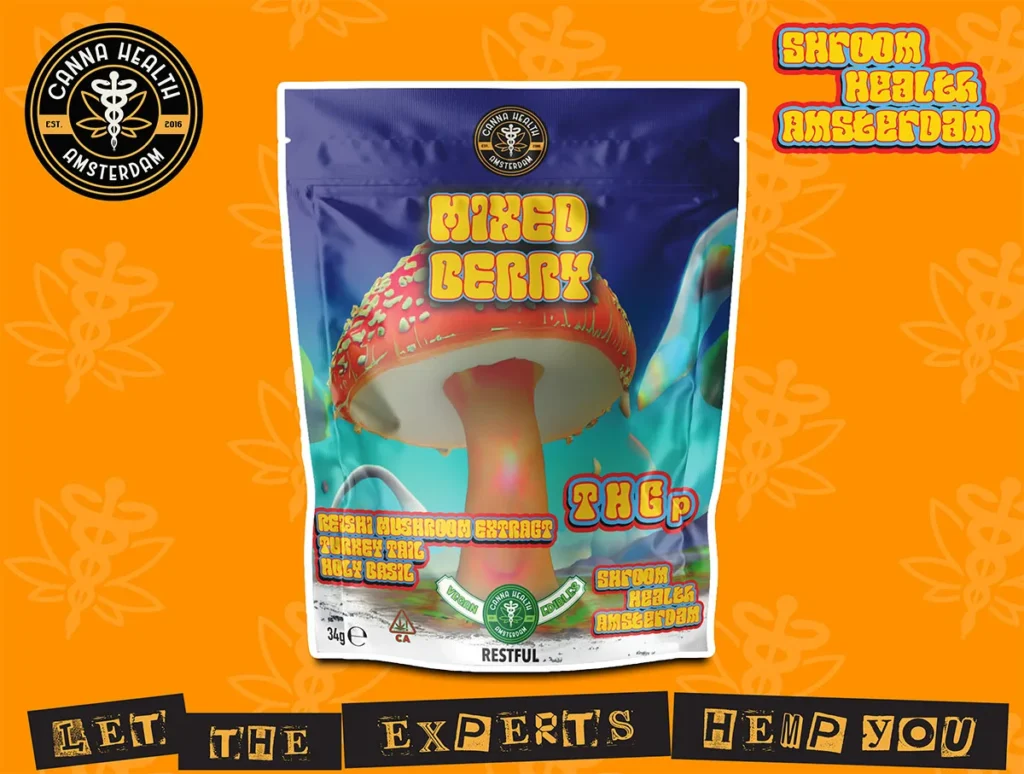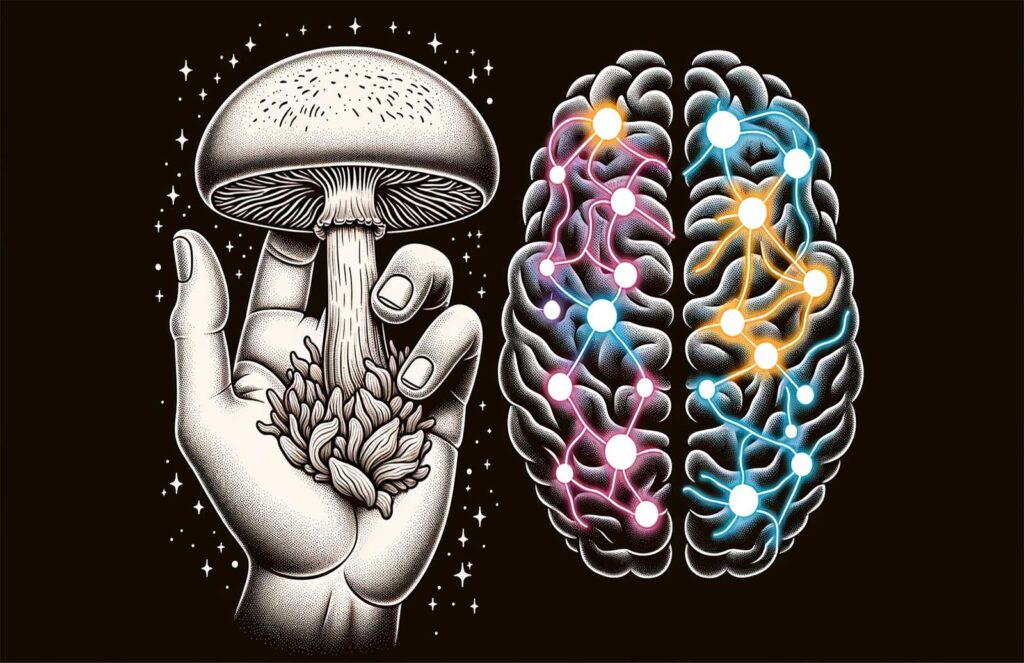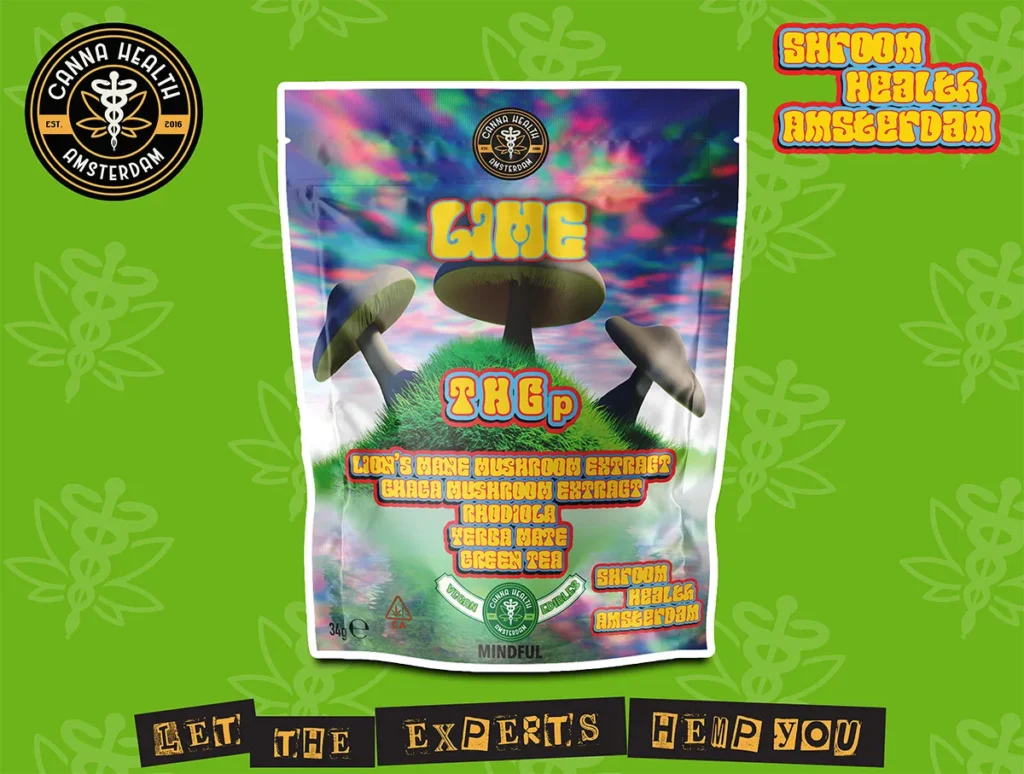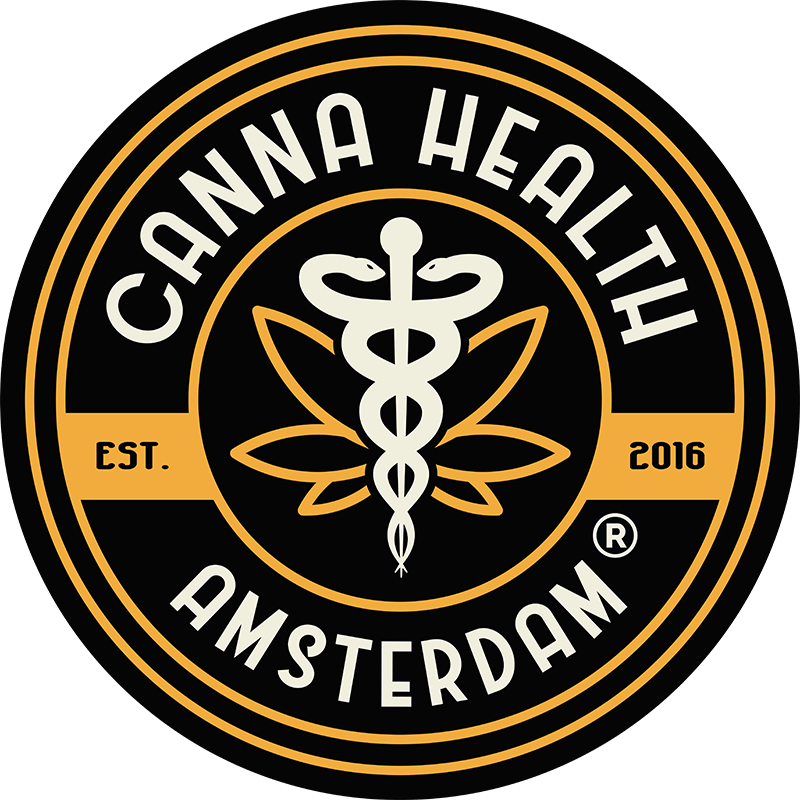
Blog
Cordyceps, Maitake, Ashwagandha, and Cacao Extracts – The Combined Power

In the realm of natural health solutions, the combination of Cordyceps, Maitake, Ashwagandha, and Cacao Extracts presents a fascinating blend of traditional wisdom and modern scientific validation. This article delves into the unique benefits of each, backed by recent research, and explores the potential synergistic effects when these are combined.
Cordyceps: The Ancient Healer
Cordyceps stands out for its anti-inflammatory properties, exercise performance enhancement, anti-aging and libido-enhancing qualities, anti-cancer effects, and blood sugar regulation potential. While traditionally used in Chinese medicine, modern research supports many of these claims, although further studies are needed to fully establish its efficacy in certain areas.
Cordyceps, a fungus known for its unique properties in traditional medicine, has been a subject of modern scientific interest. Here are some of the key findings from research on Cordyceps:
- Anti-Inflammatory Properties: Studies suggest that cordyceps contain a bioactive component called cordycepin, which can help with inflammation related to various conditions such as asthma, rheumatoid arthritis, and hepatitis. This positions cordycepin as a potential nutraceutical with positive effects on conditions associated with chronic low-grade inflammation.
- Exercise Performance Enhancement: Reduced inflammation may also boost exercise performance. One study followed individuals participating in high-intensity exercise and consuming a mushroom blend containing cordyceps, which showed significant improvement in VO2 max. Another study combining Rhodiola crenulata and C. sinensis suggested improved aerobic performance during altitude training. However, there are also studies that found no effect on aerobic capacity or endurance exercise, indicating a need for more research to fully understand cordyceps’ role in exercise performance.
- Anti-Aging and Libido Enhancing: Cordyceps have traditionally been used in Chinese medicine to provide energy, reduce fatigue, and boost libido and sex drive. It’s believed that cordycepin may help regulate energy metabolism, contributing to these effects.
- Anti-Cancer Effects: Research indicates that cordyceps is among several fungi with anti-breast cancer activity and may be a candidate for cancer immunotherapy. In China, it has also been used as a dietary therapy for lung cancer patients.
- Blood Sugar Regulation: Cordyceps could be beneficial for anti-diabetic properties, as lab studies suggest it can reduce blood sugar and improve insulin resistance.

Maitake: The ‘Dancing’ Mushroom’s Health Benefits
Maitake’s health benefits include diabetes and hypertension management, immune system enhancement, anti-cancer properties, cholesterol management, fertility promotion, and anti-allergic effects. The mushroom’s bioactive compounds are believed to contribute to these diverse health benefits, making it a valuable addition to natural health regimens.
Maitake mushroom, scientifically known as Grifola frondosa, is not just a culinary delight but also a source of various health benefits, backed by scientific research. Here’s an overview of the key benefits identified:
- Management of Diabetes and High Blood Pressure: Maitake has been traditionally used in Asian medicine for managing diabetes and hypertension. The mushroom contains nutrients that have shown promise in these areas, although more human studies are needed to confirm their efficacy. Animal studies have found that Maitake mushroom powder and extracts can lower blood pressure, potentially via the renin-angiotensin system. It’s also been noted for its potential in improving cholesterol and kidney function in hypertensive rats. These findings suggest the possibility of Maitake being beneficial for blood pressure and diabetes management.
- Boosting the Immune System: One of the most well-known benefits of Maitake is its potential to enhance immune function. While the data in humans are limited, preclinical studies have shown protective effects against high insulin and lipid levels and inflammation. Additionally, the mushroom has exhibited antitumor potential and enhanced bone marrow colony formation, reducing toxicity from certain cancer treatments. These effects indicate a promising role in immunomodulation and potential cancer therapy.
- Anti-cancer Properties: Maitake has drawn attention for its potential anti-cancer effects. A study on mice showed that a Maitake extract called D-Fraction Pro4X significantly reduced the development of breast cancer cells. This extract appeared to inhibit cancer spread and formation of new blood vessels. Moreover, another study found that when combined with chemotherapy, Maitake extract enhanced immune cell activity more than chemotherapy alone. These findings highlight Maitake’s potential as a complementary therapy in cancer treatment, although more research is needed to confirm these effects in humans.
- Cholesterol Management: Studies have demonstrated that Maitake can impact cholesterol levels positively. A Japanese study on rats found that mushroom fibers, including those from Maitake, influenced the way the body processes fat and cholesterol, leading to a reduction in blood and liver cholesterol levels. This suggests a potential role for Maitake in managing cholesterol through dietary means.
- Promoting Fertility: A small Japanese study found that an extract from Maitake mushrooms might help women with polycystic ovary syndrome (PCOS) ovulate. The study observed that a significant proportion of women taking Maitake extract ovulated, and when combined with clomiphene, the effectiveness increased. This finding opens up avenues for further research in the area of fertility and PCOS.
- Anti-Allergic Effects: Maitake mushrooms may also have anti-allergic properties. A study found that Maitake extract could reduce the release of histamine and cytokines by mast cells, which are involved in allergic reactions. This suggests that Maitake could potentially alleviate allergy symptoms like hay fever by reducing the body’s inflammatory reaction.
In conclusion, while Maitake mushrooms are widely recognized for their potential health benefits, it is essential to note that much of the research is still in early stages, especially regarding human trials. Therefore, while promising, these benefits should be considered with a degree of caution, and always in consultation with healthcare professionals.

Ashwagandha Extract: Stress-Relieving Herb
Ashwagandha (Withania somnifera), also known as winter cherry, has been gaining attention for its wide array of health-promoting activities. This ancient herb, integral to Ayurvedic medicine, is being increasingly studied for its benefits in modern health science.
Ashwagandha is renowned for reducing stress and anxiety, offering neuroprotective and adaptogenic effects, and showing anti-inflammatory and antimicrobial activities. It also has cardioprotective, anti-diabetic properties, and influences reproductive health. While it shows promise in reducing cancer risks and improving memory and anti-aging properties, the recommended dosage and potential side effects need to be considered.
Here are some key findings from recent research:
- Stress and Anxiety Reduction: One of the most celebrated benefits of Ashwagandha is its ability to help normalize cortisol levels, thus reducing the stress response. This effect is particularly beneficial for those with chronic stress, as it could potentially lower the risk of developing chronic conditions like obesity, diabetes, hypertension, heart disease, and others.
- Neuroprotective and Adaptogenic Effects: Ashwagandha has shown promising results in neuroprotection, with potential benefits in treating various brain disorders such as anxiety, Alzheimer’s, Parkinson’s, and schizophrenia. Its adaptogenic properties help the body resist stressors, thus promoting mental well-being and cognitive function.
- Anti-inflammatory and Antimicrobial Activities: The herb also exhibits anti-inflammatory and antimicrobial properties, which could be beneficial in treating and preventing various inflammatory and infectious diseases.
- Cardioprotective and Anti-diabetic Properties: Ashwagandha has shown potential in offering cardioprotective benefits and in managing diabetes, thanks to its various bioactive compounds.
- Reproductive Health: Interestingly, Ashwagandha has been reported to influence reproductive outcomes and hormonal actions, which could be beneficial in treating certain reproductive health issues.
- Cancer Risk Reduction: There is some indication that Ashwagandha may help reduce cancer risks, although this area of research is still in the early stages and requires more substantial evidence.
- Memory Improvement and Anti-Aging Properties: The herb is also credited with improving memory and offering anti-aging properties, which can be particularly useful for the elderly or those at risk of cognitive decline.
- Dosage and Safety: The recommended dosage of Ashwagandha is generally around 500 mg twice a day, although this can vary depending on the form of the supplement and individual health conditions. It’s important to choose supplements that have been independently tested for quality. While the side effects are minimal, some individuals may experience gastrointestinal upset, diarrhea, or nausea.
- Precautions: Individuals with thyroid conditions, pregnant or breastfeeding women, or those with autoimmune diseases should consult healthcare providers before using Ashwagandha, as it can interact with thyroid function and other bodily processes.
In summary, Ashwagandha offers a broad spectrum of potential health benefits, especially in stress reduction and cognitive function improvement. However, it’s crucial to use this supplement under professional guidance, particularly for those with pre-existing health conditions or those on medication. As research continues to evolve, the scope of Ashwagandha’s benefits in various health aspects may become more defined and widely recognized.
Cacao Extract: Mood Enhancer and Heart Protector
Cacao Extract, with its rich antioxidant profile, is noted for mood enhancement and cardiovascular benefits. Specific studies have highlighted its potential in improving mood, cognitive function, and heart health, although detailed studies are necessary to understand these benefits comprehensively.
Synergistic Effects: A Holistic Approach
When these supplements are combined, they may offer enhanced benefits, working synergistically to support overall health and wellness. The combination aligns with a holistic approach to health, potentially amplifying the individual benefits of each component.
Conclusion
The blend of Cordyceps, Maitake, Ashwagandha, and Cacao Extracts offers a compelling natural solution for various health concerns. However, it’s crucial to consult healthcare professionals before starting any new supplement regimen and to consider the individual effects and potential interactions of each.
Disclaimer: This blog is for informational and educational purposes only. We review and reference available studies and reputable sources; however, content may not reflect the most current research or regulations and should not be taken as medical, legal, or professional advice. We do not make or imply health claims. Products mentioned are not intended to diagnose, treat, cure, or prevent any disease and statements have not been evaluated by EFSA or the FDA. Effects can vary between individuals. Always consult a qualified healthcare professional before use and verify that any product or ingredient is lawful in your jurisdiction.

